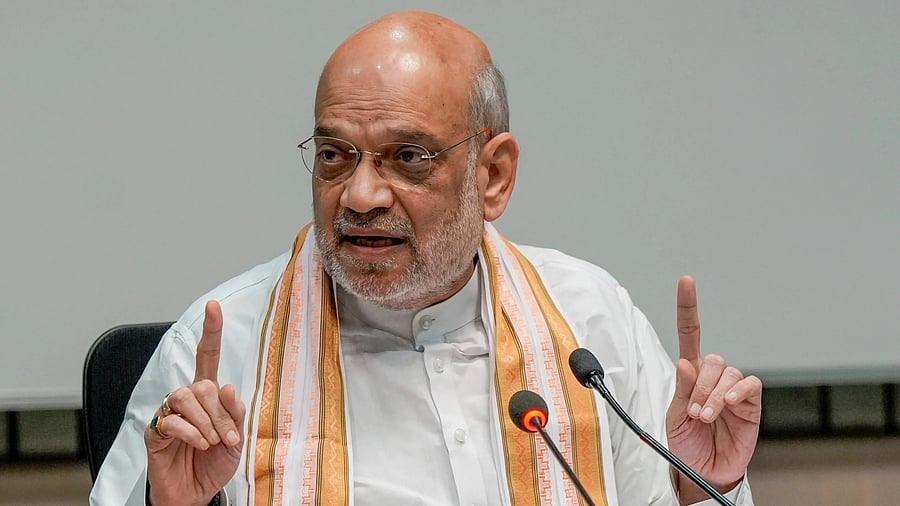
Union Home Minister Amit Shah.
Credit: PTI Photo
Srinagar: Moving a step forward in its dialogue with representatives from Ladakh, the Union Ministry of Home Affairs (MHA) has sought a fresh and detailed draft of demands from the Leh Apex Body (LAB) and the Kargil Democratic Alliance (KDA) before convening the next round of talks in New Delhi.
LAB co-chairman Chering Dorjay Lakruk confirmed that the body met in Leh on Saturday to deliberate on the contents of the new draft, which will reflect the joint stand of both the LAB and the KDA.
“The LAB is working on the draft. It held a meeting in Leh today to discuss and finalize its points. Thereafter, it will seek inputs from the KDA. Later, both the organizations will sit and prepare the document with consensus,” Lakruk said.
He added that the document, once finalized, will be a joint draft representing the collective voice of Ladakh’s two main representative platforms. “We will deliberate and discuss all points to be included in the draft before submitting it to the MHA,” he said.
Though Lakruk declined to share the specifics of the draft, sources indicated that it will comprehensively detail the key demands the two groups have been projecting since Ladakh was carved out as a Union Territory in August 2019.
These include statehood for Ladakh, constitutional safeguards under the Sixth Schedule, a separate Public Service Commission, and greater local representation in governance.
The MHA’s move to seek a detailed draft comes amid renewed tensions in Ladakh following the September 24 violence in Leh, when a protest march by statehood supporters turned violent, leaving four dead and dozens injured and deepening mistrust between local groups and the administration. The incident highlighted the growing frustration among residents who feel that Ladakh’s political and ecological concerns remain unaddressed more than six years after its separation from Jammu and Kashmir.
Leaders from both Leh and Kargil have repeatedly stressed that without constitutional and legislative safeguards, Ladakh’s unique identity, fragile environment, and employment rights are at risk. The joint platform of LAB and KDA was formed to push for a united front on these issues, despite historical and religious differences between the two districts.
The upcoming round of talks, likely to be held later this month in New Delhi, is expected to test whether the Centre is willing to concede ground on key issues or propose a middle path—such as limited autonomy or a tailored set of protections outside the Sixth Schedule framework.
As Ladakh’s statehood movement regains momentum following the September violence, the fresh draft sought by the MHA could determine whether the ongoing dialogue translates into meaningful constitutional guarantees—or remains yet another round of talks without tangible outcomes.